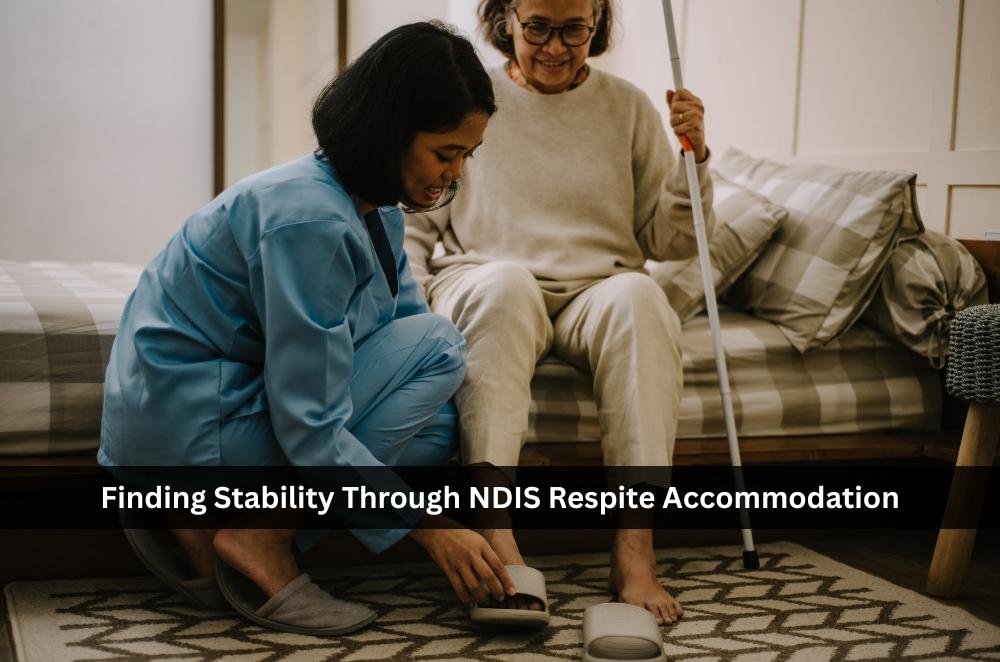Finding Stability Through NDIS Respite Accommodation

For many families and participants, disability support is a constant juggle. Appointments stack up, routines bend, and the house can start to feel like a rostering spreadsheet. In the middle of that, trusted NDIS respite accommodation matters more than it sounds. A short stay in the right place gives people breathing room—participants included. It’s a pause that doesn’t hit the brakes on progress. We’re talking safety, consistency, and a bit of normal life returning to the week. Not fancy. Just dependable and human. When respite fits the person rather than the other way around, stress eases, confidence grows, and everyone gets a shot at better days. More often, sooner.
How does respite accommodation benefit families?
Respite accommodation benefits families by giving genuine time off without sacrificing care. It keeps the participant’s routine intact while the household resets. Time away from round-the-clock support means proper sleep, fewer rushed decisions, and the freedom to handle work or life admin without worry.
It also protects relationships; patience lasts longer when everyone’s had a breather. Importantly, respite isn’t a stopgap. Used regularly, it becomes part of a steady rhythm that helps families stay well and participants stay engaged with their goals.
-
Supports carer wellbeing and energy
-
Reduces burnout and crisis moments
-
Preserves routines and community ties
-
Offers flexible scheduling when life shifts
When families know respite is locked in, booked, reliable, and safe, the whole week feels lighter. Access to NSW respite accommodation options means help is close, predictable, and shaped around real lives.
What role does respite play in independence?
Respite plays a clear role in independence by making space to practice skills away from home. Those short, supported stays are low-pressure chances to try things without a chorus of reminders. Participants test choices, meet new staff, navigate different kitchens and timetables, and learn what works for them. Confidence builds in small steps: packing a bag, managing meds with prompts, choosing meals, speaking up about comfort and boundaries. That progress often follows people home, turning into better self-management during the week.
-
Safe setting to trial new routines
-
Gentle scaffolding for decision-making
-
Real-world practice with everyday tasks
Why is quality important in respite care?
Quality is crucial in respite care because safety and dignity hang in the details. The right team listens, adapts, and treats people like people—not jobs to be processed.
Strong communication before a stay matters: clear plans, allergy notes, mobility needs, preferred routines, and who to call if something shifts. On the ground, quality looks like calm staff, clean spaces, and predictable scheduling with room for choice. It also looks like a follow-up—what went well, what didn’t, and what to tweak next time. When those pieces are in place, carers can genuinely rest and participants feel respected, not parked.
Conclusion
Respite isn’t an add-on; it’s part of a good life with disability supports humming in the background. Regular, trusted breaks steady the whole system, helping goals stick and stress fade. Even short-term accommodation can make a real difference, giving both the person and their carers a chance to recharge without disrupting routines.
- Vibnix Blog
- Politics
- News
- Liberia News
- Entertainment
- Technology
- Educación
- Art
- Causes
- Crafts
- Dance
- Drinks
- Film
- Fitness
- Food
- Juegos
- Gardening
- Health
- Home
- Literature
- Music
- Networking
- Other
- Party
- Religion
- Shopping
- Sports
- Theater
- Wellness


